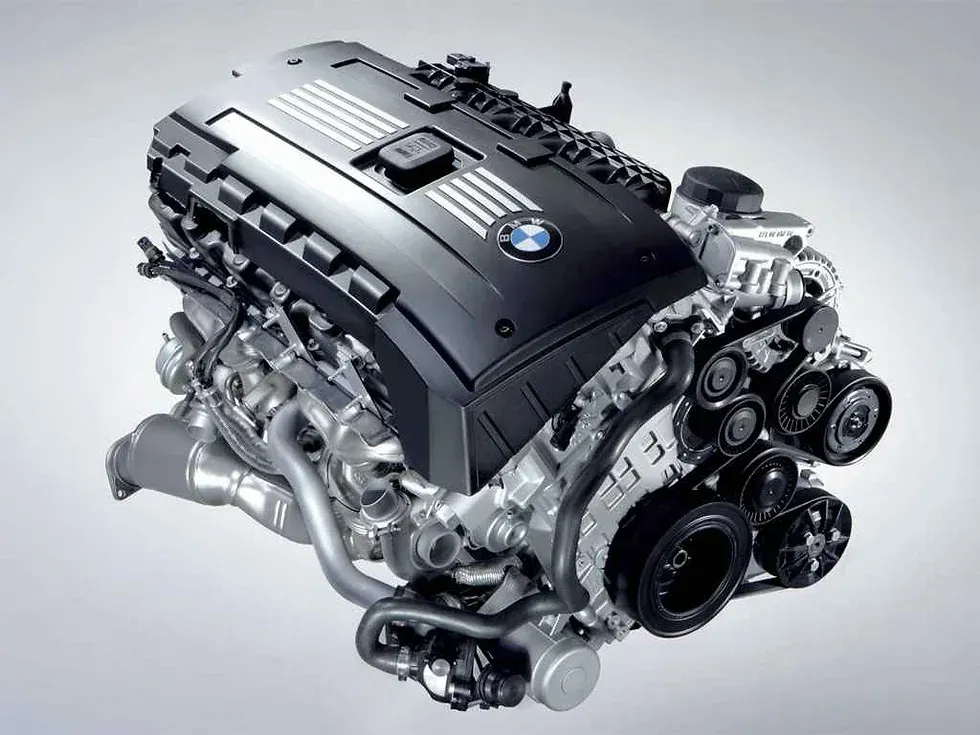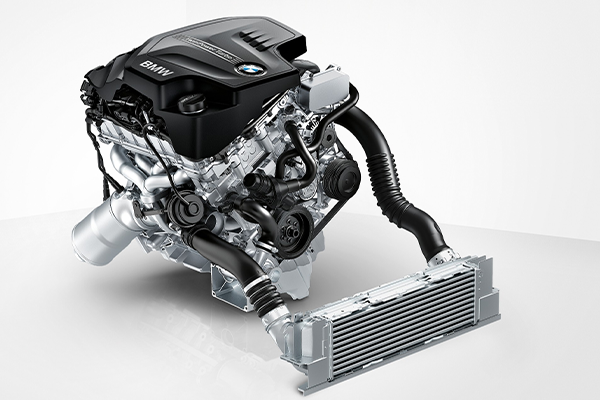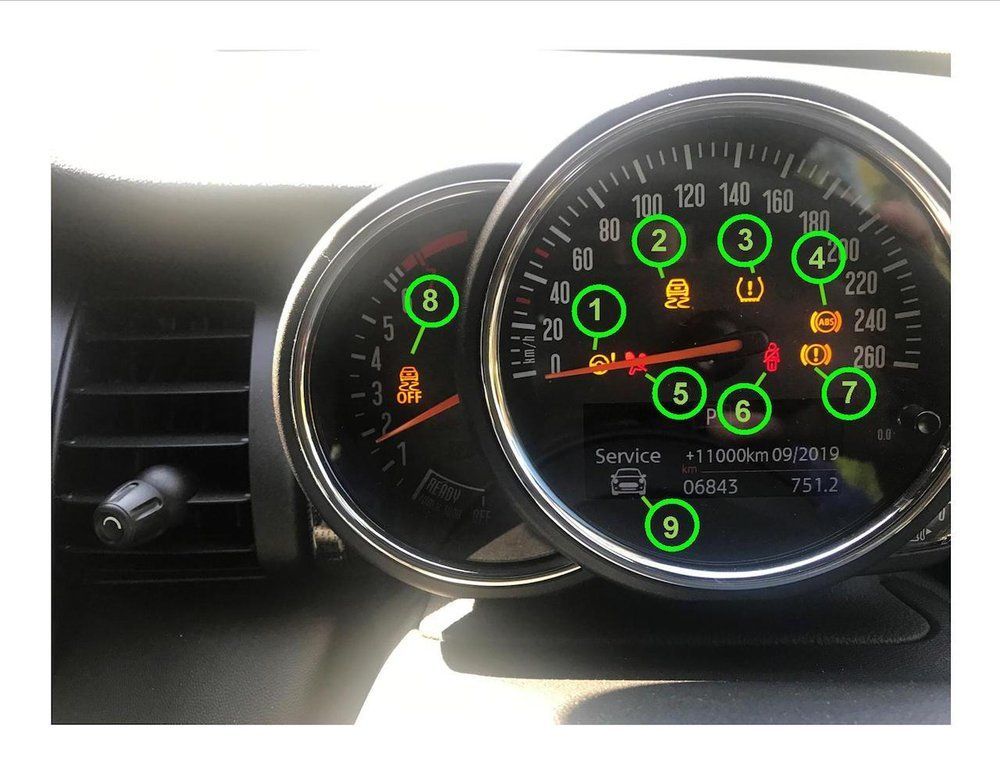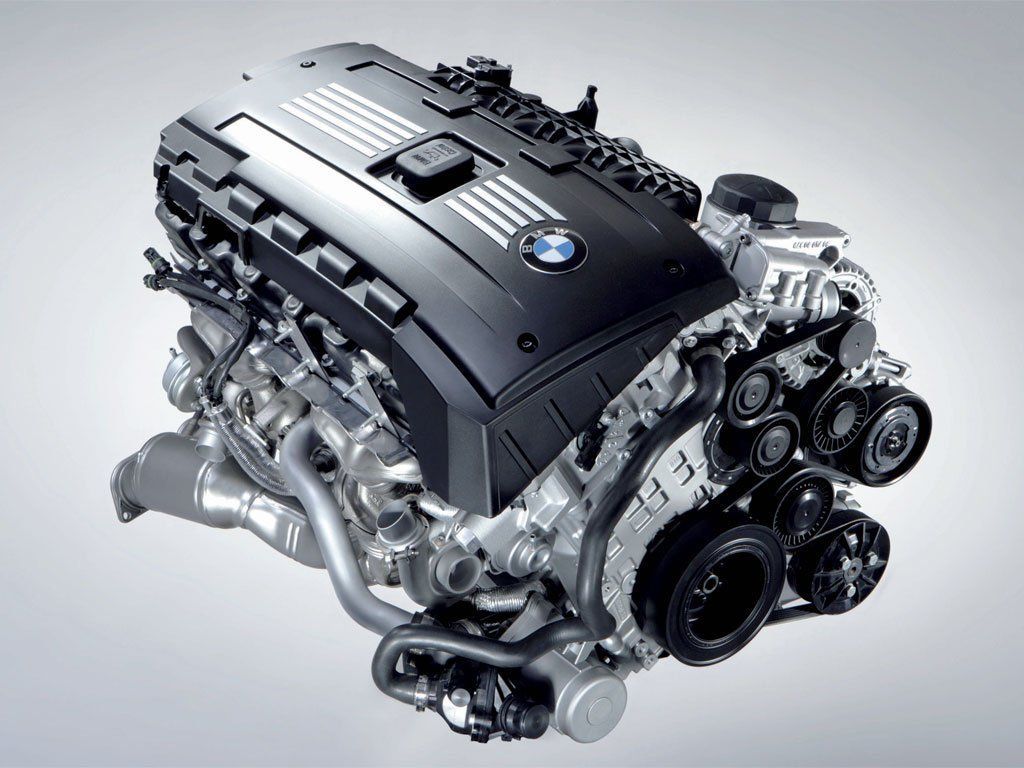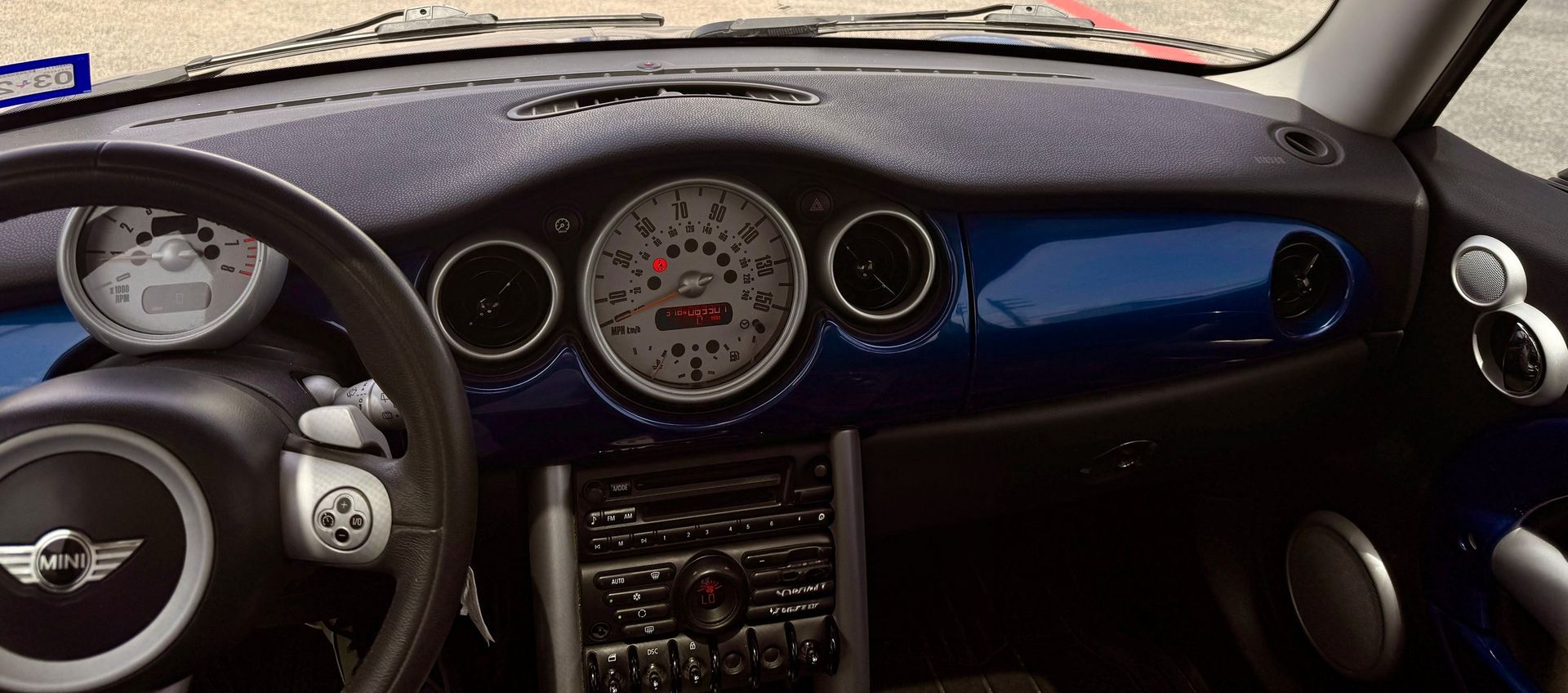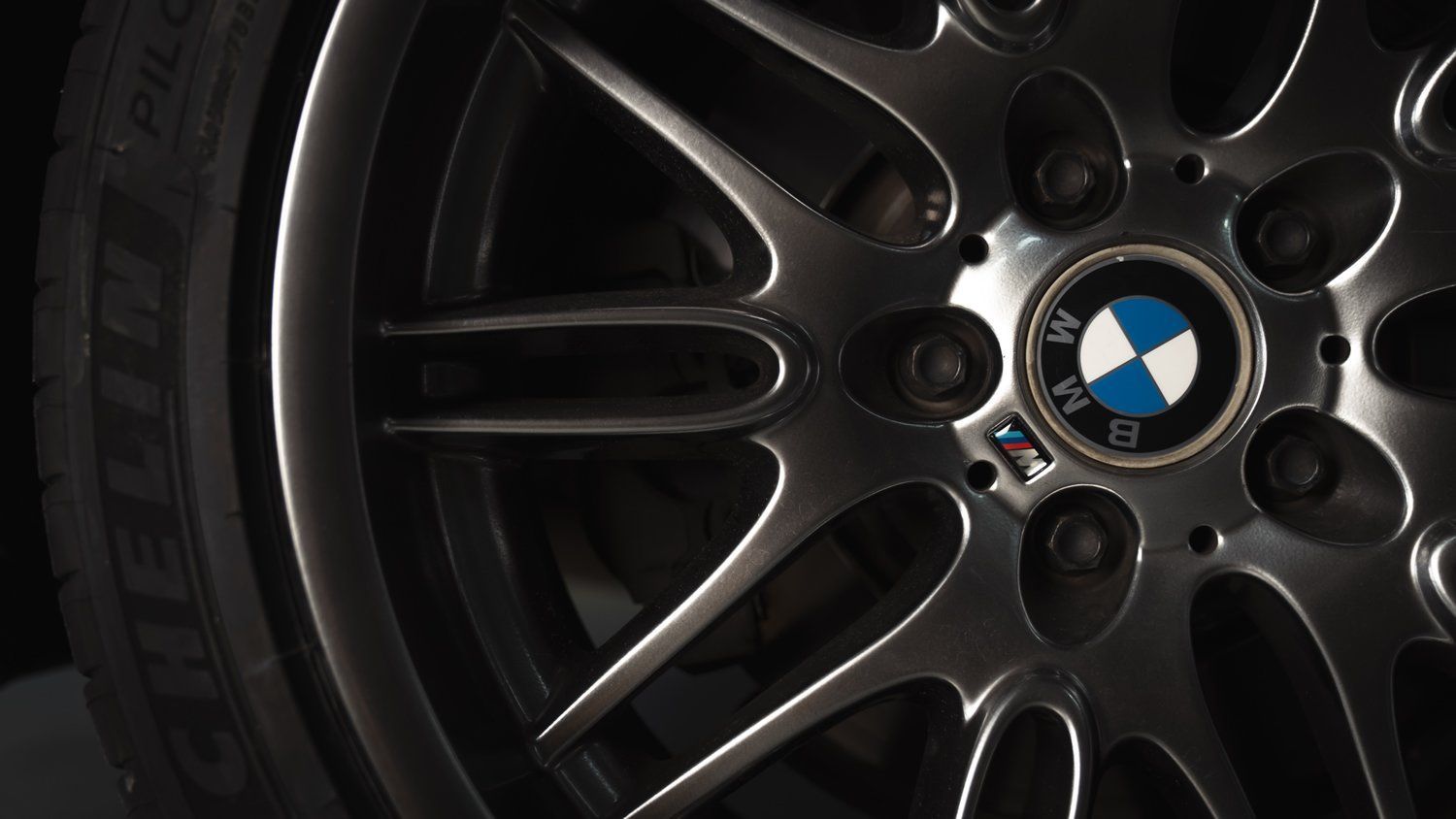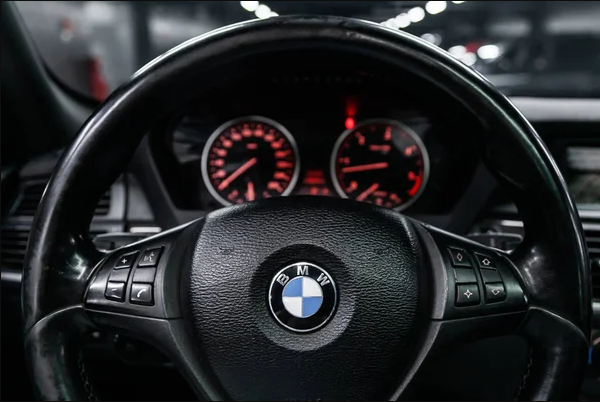Mon - Fri 8:00am - 6:00pm
Give us a call:
The Most Common Issues Porsche Owners Deal With: What You Need to Know
C Deselle • December 20, 2024
Owning a Porsche is often seen as the pinnacle of automotive passion, a fusion of engineering excellence and driving excitement. However, like all high-performance vehicles, Porsches are not immune to mechanical problems, and understanding the issues your car may face is essential to maintaining its peak performance.
IMS Bearing Failure (Intermediate Shaft Bearing)
If you own a Porsche built before 2009, particularly a 911, Boxster, or Cayman, you’ve likely heard about IMS bearing failure. The intermediate shaft bearing is an integral part of the engine that drives the camshaft. When it fails, it can lead to catastrophic engine damage. This issue is widely recognized in the Porsche community because of its potential severity. Failure can cause total engine destruction, turning a minor repair into a costly rebuild or replacement.
Rear Main Seal (RMS) Oil Leaks
Porsche’s horizontally opposed (or flat) engines, while brilliantly engineered, are prone to a specific problem: rear main seal (RMS) oil leaks. This issue often affects the early water-cooled 996 and 997 911 models. The RMS sits between the engine and transmission and, over time, can degrade and start leaking oil. Left unaddressed, this can lead to more significant engine problems, such as oil starvation and internal wear.
Coolant System Leaks
Porsches, particularly the 996 and 997 models, can suffer from coolant system issues. Over time, coolant hoses and pipes can crack or degrade, and water pumps may fail. If your Porsche loses coolant, the engine can overheat, leading to further complications, including warped heads or other engine damage.
Air-Oil Separator (AOS) Failure
Porsche’s flat-six engines are prone to another issue: air-oil separator (AOS) failure. The AOS is responsible for separating oil from the engine’s crankcase vapors before they’re recirculated through the intake. When this part fails, oil can enter the intake, leading to increased oil consumption and even engine misfires. In severe cases, it can cause blue smoke to emit from the exhaust—never a welcome sight for any Porsche owner.
Brakes and Rotors
Performance cars like Porsche are known for their exceptional braking systems, but with that power comes wear and tear. If you drive your Porsche the way it was meant to be driven—spiritedly or on the track—you’ll likely experience faster brake pad and rotor wear. Squealing brakes or vibrations during braking are telltale signs that it’s time for a brake service.
Suspension Wear
Porsches are renowned for their precise handling, thanks in part to their well-tuned suspension systems. Over time, though, suspension components such as bushings, shocks, and control arms can wear out. This is especially true if your car regularly encounters rough roads or is driven aggressively. Suspension wear can lead to a rougher ride, uneven tire wear, and diminished handling performance.
Electrical Problems
As modern Porsches have become increasingly advanced with features like infotainment systems and electronic driver aids, the risk of electrical issues has grown. Problems can range from a drained battery to malfunctioning electronics or faulty sensors. While these issues may not directly affect your car’s mechanical performance, they can be frustrating and sometimes difficult to diagnose.
Exhaust System Issues
Porsche’s exhaust systems are finely tuned for both performance and sound, but over time, parts like the mufflers or catalytic converters can develop cracks, rust, or wear out. This is especially common in older Porsche models. Not only can this lead to increased exhaust noise, but it can also reduce engine efficiency and trigger check engine lights.
Transmission Issues (PDK and Tiptronic)
Porsche’s dual-clutch PDK and automatic Tiptronic transmissions are praised for their smooth operation and quick shifts, but they can develop problems over time. Common issues include hard shifts, slipping, or failure to engage gears. These problems can be caused by low transmission fluid, worn clutches, or faulty sensors.
Timing Chain Tensioner Problems
Timing chain tensioner issues are another problem that can plague Porsche owners, particularly in older models. A failing tensioner can lead to improper timing, which affects engine performance and can cause severe internal damage if not addressed.
Fuel Injector Problems
Fuel injectors can become clogged or fail over time, leading to poor engine performance, rough idling, or reduced fuel efficiency. This is especially common in high-mileage Porsches. Faulty injectors can also cause misfires and trigger the check engine light.
Keeping Your Porsche in Peak Condition
While these are some of the most common issues Porsche owners face, the good news is that regular maintenance can prevent many of these problems from becoming costly repairs. Being proactive with routine inspections, keeping an eye on fluid levels, and addressing any unusual noises or symptoms early can save you time and money in the long run.
At TMJ BImmers, we specialize in addressing these common issues and keeping your Porsche performing at its best. Whether you’re dealing with an IMS bearing concern, need a brake overhaul, or simply want a thorough inspection to catch potential problems, we’re here to help. Reach out to us today to schedule an appointment—your Porsche deserves expert care!
In this article, we’ll dive into some of the most common mechanical issues Porsche owners experience. Whether you own a classic 911, a sleek Cayman, or a sporty Macan, staying informed about potential problems can help you avoid costly repairs and keep your Porsche performing as it should.
If you own a Porsche built before 2009, particularly a 911, Boxster, or Cayman, you’ve likely heard about IMS bearing failure. The intermediate shaft bearing is an integral part of the engine that drives the camshaft. When it fails, it can lead to catastrophic engine damage. This issue is widely recognized in the Porsche community because of its potential severity. Failure can cause total engine destruction, turning a minor repair into a costly rebuild or replacement.
Prevention and Solution: Many Porsche owners opt for preventative IMS bearing replacements, especially in pre-2009 models. Aftermarket solutions have been developed to replace the faulty bearings with more durable ones. If you own an older Porsche, it’s wise to have your car inspected for signs of IMS bearing wear, such as metal shavings in the oil. Addressing this early can save you from much more expensive repairs down the line.
Porsche’s horizontally opposed (or flat) engines, while brilliantly engineered, are prone to a specific problem: rear main seal (RMS) oil leaks. This issue often affects the early water-cooled 996 and 997 911 models. The RMS sits between the engine and transmission and, over time, can degrade and start leaking oil. Left unaddressed, this can lead to more significant engine problems, such as oil starvation and internal wear.
What to Look For: If you notice oil spots under your car or an unusual drop in oil levels, it could be due to an RMS leak. While it may not be an immediate emergency, it’s crucial to address the issue before the leak becomes more serious. Replacing the RMS requires removing the transmission, so it’s best to tackle it in combination with other major services, like clutch replacement.
Porsches, particularly the 996 and 997 models, can suffer from coolant system issues. Over time, coolant hoses and pipes can crack or degrade, and water pumps may fail. If your Porsche loses coolant, the engine can overheat, leading to further complications, including warped heads or other engine damage.
Warning Signs: The first sign of trouble is often the low coolant warning light on the dashboard. You might also notice coolant puddles under the car or experience engine overheating. Regular maintenance checks can help you spot these problems early, allowing for timely repairs. Water pumps typically last around 60,000 to 80,000 miles, so replacing them preventatively is a smart move.
Porsche’s flat-six engines are prone to another issue: air-oil separator (AOS) failure. The AOS is responsible for separating oil from the engine’s crankcase vapors before they’re recirculated through the intake. When this part fails, oil can enter the intake, leading to increased oil consumption and even engine misfires. In severe cases, it can cause blue smoke to emit from the exhaust—never a welcome sight for any Porsche owner.
How to Address It: If you experience blue smoke from the exhaust, excessive oil consumption, or a check engine light, it’s likely your AOS needs replacing. This isn’t a repair you want to delay, as continued driving with a faulty AOS can result in further engine damage. Fortunately, this part isn’t overly expensive, but it does require disassembly of engine components to access.
Performance cars like Porsche are known for their exceptional braking systems, but with that power comes wear and tear. If you drive your Porsche the way it was meant to be driven—spiritedly or on the track—you’ll likely experience faster brake pad and rotor wear. Squealing brakes or vibrations during braking are telltale signs that it’s time for a brake service.
Keeping Your Brakes in Top Shape: Regular brake inspections and maintenance are critical. If you notice any change in braking performance or noise, it’s time to have your brake pads and rotors checked. For drivers who frequently track their cars, upgrading to high-performance brake pads and rotors might be a good investment to withstand the additional stress.
Porsches are renowned for their precise handling, thanks in part to their well-tuned suspension systems. Over time, though, suspension components such as bushings, shocks, and control arms can wear out. This is especially true if your car regularly encounters rough roads or is driven aggressively. Suspension wear can lead to a rougher ride, uneven tire wear, and diminished handling performance.
When to Act: If you hear clunking sounds when going over bumps or notice a decrease in ride comfort, it’s likely time to have your suspension inspected. Maintaining the suspension system ensures that your Porsche continues to deliver the handling performance it’s known for.
As modern Porsches have become increasingly advanced with features like infotainment systems and electronic driver aids, the risk of electrical issues has grown. Problems can range from a drained battery to malfunctioning electronics or faulty sensors. While these issues may not directly affect your car’s mechanical performance, they can be frustrating and sometimes difficult to diagnose.
Diagnosing Electrical Glitches: If you experience any dashboard warning lights, dead batteries, or unresponsive electronics, the issue may lie within the electrical system. It’s always a good idea to run a diagnostic check if you suspect an electrical issue, as they can be tricky to pinpoint without specialized equipment.
Porsche’s exhaust systems are finely tuned for both performance and sound, but over time, parts like the mufflers or catalytic converters can develop cracks, rust, or wear out. This is especially common in older Porsche models. Not only can this lead to increased exhaust noise, but it can also reduce engine efficiency and trigger check engine lights.
Signs of Exhaust Wear: If you notice a louder-than-usual exhaust note, rattling noises, or a reduction in performance, it may be time to inspect your exhaust system. Repairing or upgrading the exhaust can improve both performance and the sound of your Porsche.
Porsche’s dual-clutch PDK and automatic Tiptronic transmissions are praised for their smooth operation and quick shifts, but they can develop problems over time. Common issues include hard shifts, slipping, or failure to engage gears. These problems can be caused by low transmission fluid, worn clutches, or faulty sensors.
Warning Signs: If you feel your Porsche struggling to shift gears or slipping out of gear, it’s time to have the transmission checked. Regular fluid changes can help extend the life of the transmission, while software updates may resolve minor shifting issues.
Timing chain tensioner issues are another problem that can plague Porsche owners, particularly in older models. A failing tensioner can lead to improper timing, which affects engine performance and can cause severe internal damage if not addressed.
Symptoms: A rattling noise during startup is a common indicator of timing chain tensioner wear. If you hear this noise, it’s crucial to have your Porsche inspected promptly. Replacing the timing chain tensioner before it fails completely is key to avoiding costly engine repairs.
Fuel injectors can become clogged or fail over time, leading to poor engine performance, rough idling, or reduced fuel efficiency. This is especially common in high-mileage Porsches. Faulty injectors can also cause misfires and trigger the check engine light.
How to Resolve It: If you notice rough idling, misfires, or a drop in fuel economy, it’s worth having the fuel injectors inspected and cleaned. In some cases, they may need to be replaced to restore proper fuel delivery and performance.
While these are some of the most common issues Porsche owners face, the good news is that regular maintenance can prevent many of these problems from becoming costly repairs. Being proactive with routine inspections, keeping an eye on fluid levels, and addressing any unusual noises or symptoms early can save you time and money in the long run.
At TMJ BImmers, we specialize in addressing these common issues and keeping your Porsche performing at its best. Whether you’re dealing with an IMS bearing concern, need a brake overhaul, or simply want a thorough inspection to catch potential problems, we’re here to help. Reach out to us today to schedule an appointment—your Porsche deserves expert care!
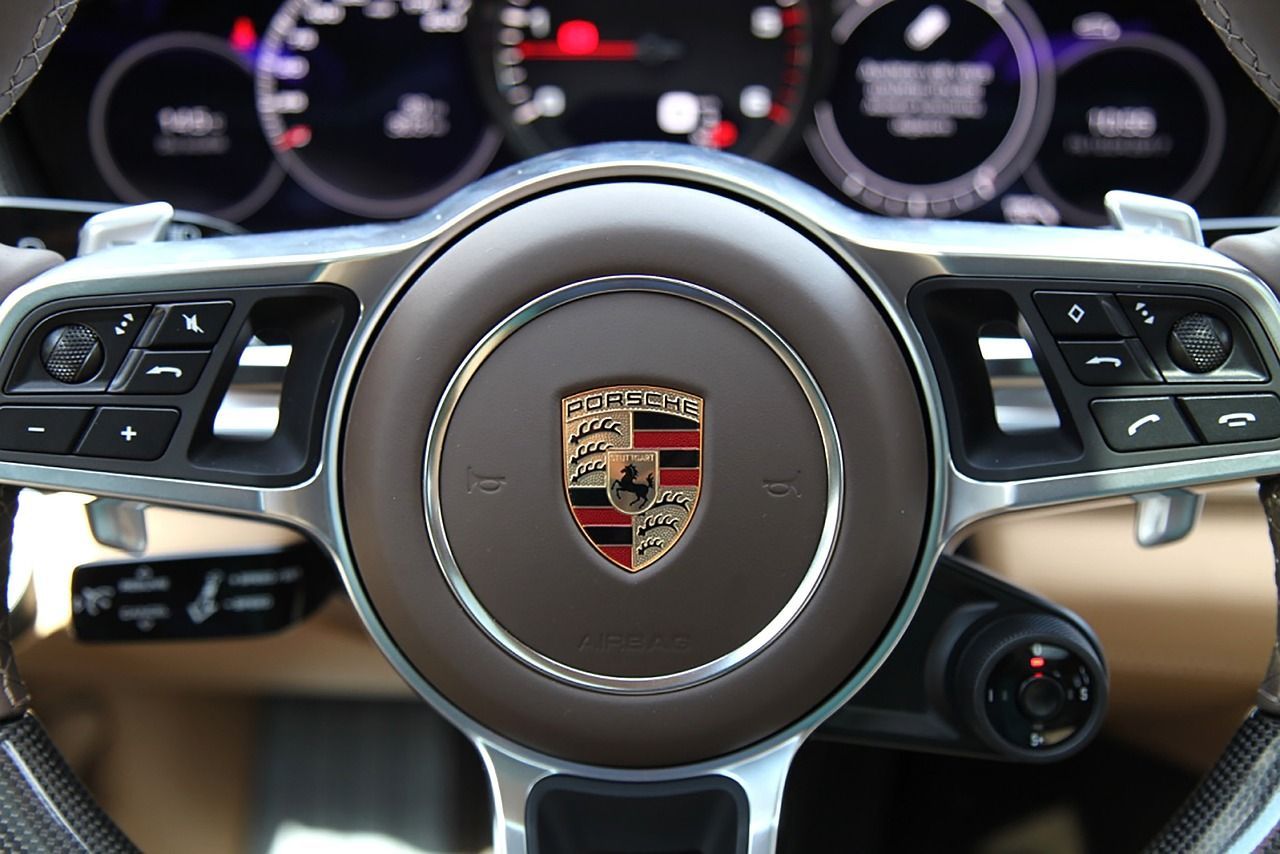
By C Deselle
•
March 28, 2025
As a proud Porsche owner, you know your car is more than just a mode of transportation—it’s a masterpiece of engineering, performance, and luxury. However, like any high-performance vehicle, your Porsche is equipped with a variety of warning lights on the dashboard designed to keep you informed about its health. Understanding these lights is crucial for maintaining your Porsche in peak condition. This guide will walk you through the most common Porsche warning lights, explain what they mean, and provide guidance on the necessary actions to take when they appear. Why Warning Lights Matter Warning lights serve as your Porsche’s way of communicating potential issues, ranging from minor concerns to critical problems requiring immediate attention. These alerts can range from simple reminders, such as a low fuel warning, to serious issues like engine or braking system malfunctions. Ignoring these warnings can lead to costly repairs or even hazardous situations on the road. By understanding these indicators, you can take the appropriate actions to ensure your Porsche continues to run smoothly and efficiently. 1. Check Engine Light (CEL) What It Looks Like: A yellow or amber outline of an engine, sometimes with the word "CHECK." What It Means: This light indicates that the vehicle’s onboard diagnostics system has detected an issue. The cause could range from something minor, like a loose gas cap, to more serious problems, such as engine misfires, faulty oxygen sensors, or catalytic converter issues. What to Do: If the light is steady, schedule a diagnostic check as soon as possible. If it's flashing, it indicates a severe issue that requires immediate attention—pull over and have your Porsche towed to a repair shop to prevent engine damage. 2. Battery Warning Light What It Looks Like: A red battery icon. What It Means: This indicates that your Porsche’s battery is not charging properly, which could be due to a failing alternator, a weak battery, or corroded connections. What to Do: Reduce electrical usage and drive to a service center immediately. If the battery is completely discharged, your Porsche may not restart. 3. Brake Warning Light What It Looks Like: A red circle with an exclamation point inside or the word "BRAKE." What It Means: This could indicate low brake fluid levels, worn brake pads, or an issue with the braking system. What to Do: Check if your parking brake is engaged. If the light remains on, have your brakes inspected immediately at TMJ Bimmers to ensure safety. 4. Oil Pressure Warning Light What It Looks Like: A red oil can symbol with a drip. What It Means: Low oil pressure, which may result from low oil levels, a failing oil pump, or an oil leak. What to Do: Pull over immediately and check the oil level. If adding oil doesn’t resolve the issue, have your Porsche towed to a service center to prevent engine damage. 5. ABS (Anti-lock Braking System) Warning Light What It Looks Like: A yellow or amber circle with the letters "ABS." What It Means: There is an issue with your Porsche’s anti-lock braking system, which helps maintain control during hard braking. What to Do: While regular brakes may still function, have the ABS system inspected as soon as possible to avoid compromised braking performance. 6. Tire Pressure Monitoring System (TPMS) Light What It Looks Like: An exclamation point inside a horseshoe shape. What It Means: One or more tires are underinflated, which can impact handling and fuel efficiency. What to Do: Check tire pressure and inflate to the recommended levels. If the light persists, have the TPMS system checked. 7. Coolant Temperature Warning Light What It Looks Like: A red thermometer symbol. What It Means: Your Porsche's engine is overheating, possibly due to low coolant levels or radiator issues. What to Do: Pull over immediately, turn off the engine, and allow it to cool. Check coolant levels and top off if needed, but seek professional service if the problem persists. 8. Airbag Warning Light What It Looks Like: A person with an airbag in front. What It Means: There is a malfunction in the airbag system, which may prevent airbags from deploying properly in an accident. What to Do: Have the system inspected immediately to ensure safety. 9. Engine Temperature Warning Light What It Looks Like: A red thermometer submerged in liquid. What It Means: The engine is running hotter than normal, often due to low coolant, a failing water pump, or a faulty thermostat. What to Do: Pull over, allow the engine to cool, and check coolant levels. If the light stays on, have the vehicle towed to TMJ Bimmers to avoid potentially catastrophic engine damage. 10. Steering Wheel Warning Light What It Looks Like: A yellow or red steering wheel icon. What It Means: A problem with the power steering system, making steering more difficult. What to Do: Drive cautiously and schedule a service appointment. 11. Transmission Warning Light What It Looks Like: A gear with an exclamation point or the word "TRANS." What It Means: There is a problem with the transmission system, such as low fluid levels or mechanical failure. What to Do: Avoid hard accelerations and schedule a transmission inspection immediately. 12. Fuel Indicator Light What It Looks Like: A yellow gas pump icon. What It Means: Your fuel level is low, usually at 10-15% capacity. What to Do: Refuel as soon as possible to prevent running out and avoid damage to the fuel pump. Why Choose TMJ Porsche Specialists for Diagnostic Testing? While some warning lights may have simple solutions, others require expert diagnosis and repair. Porsches are complex, high-performance vehicles that demand specialized care. At TMJ Bimmers, we have the expertise and advanced equipment to accurately diagnose and repair any Porsche issues. Our team understands Porsche-specific systems, ensuring your vehicle receives the best possible care. Conclusion Understanding your Porsche’s warning lights is essential for keeping your vehicle in peak condition. By addressing these alerts promptly, you can prevent minor issues from escalating into costly repairs. If you’re unsure about a warning light or need expert advice, contact TMJ Bimmers Euro Car Care at 713.384.2273. We’re here to ensure your Porsche remains a top-performing machine on the road.
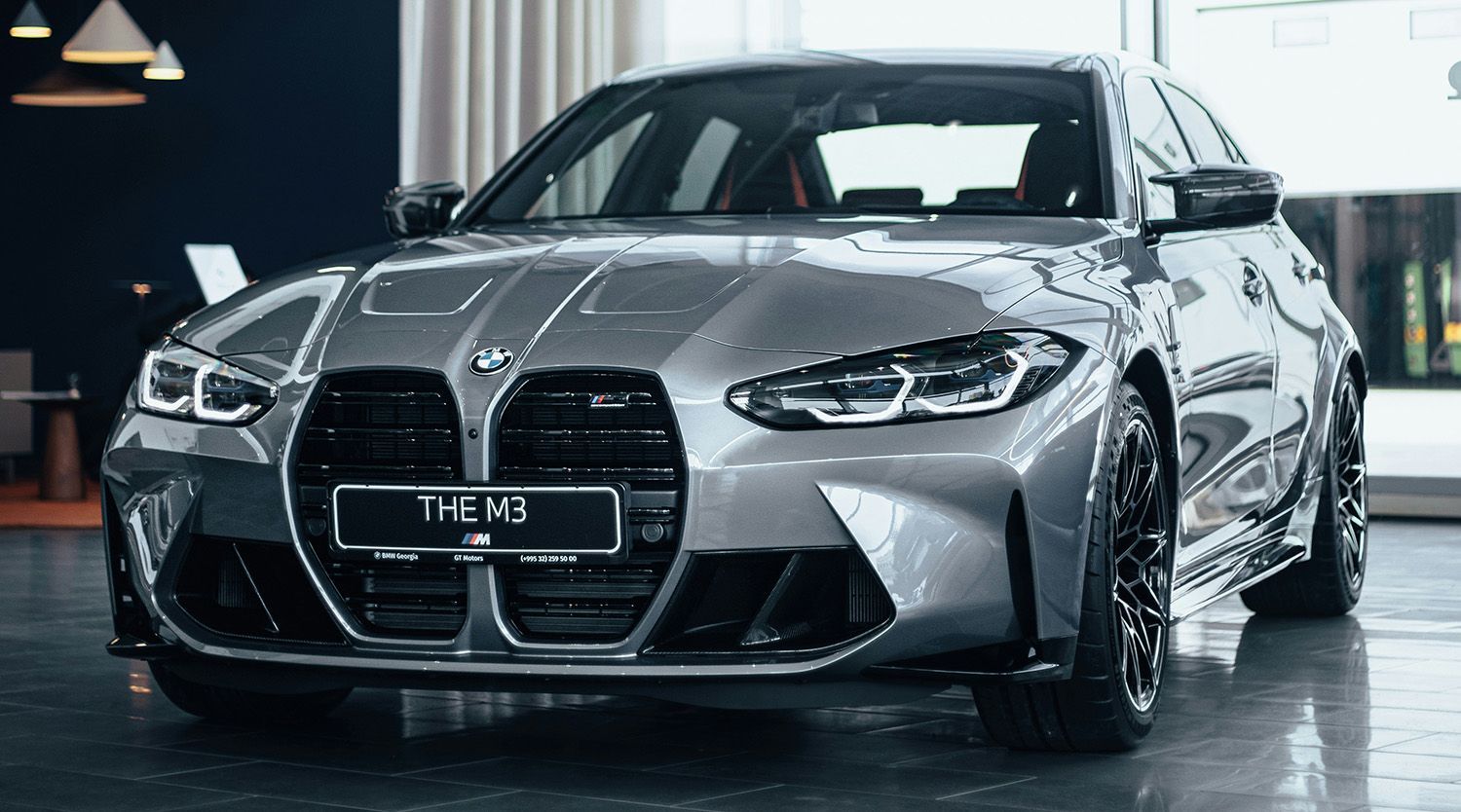
By C Deselle
•
March 14, 2025
BMW is a brand synonymous with performance, luxury, and driving pleasure. But for those who crave an extra level of speed, precision, and adrenaline, BMW’s M-Series—often called “M Cars”—stands at the pinnacle of automotive excellence. If you’ve ever wondered what makes an M Car different from a standard BMW, this article will dive into its history, origins, various models, and what sets these high-performance machines apart. The Origin of BMW M Cars BMW M, short for BMW Motorsport GmbH, was established in 1972 as the performance division of BMW. Originally, the M division was created to support BMW’s racing efforts, developing high-performance engines, chassis, and aerodynamics to compete in various motorsport events. The first major success of BMW M was in racing, particularly with the legendary BMW 3.0 CSL, a car that dominated the European Touring Car Championship in the 1970s. The success of BMW’s racing program led to the idea of bringing motorsport technology to road cars, and thus, the M Series was born. The First M Car: The BMW M1 (1978) The first-ever BMW M car was the BMW M1 , introduced in 1978. Designed as a mid-engine supercar, the M1 was built for homologation purposes—meaning BMW had to produce road-legal versions of the car to compete in motorsport events. It featured a 3.5L inline-six engine producing 273 horsepower, an impressive figure for its time. However, due to production difficulties, only 453 M1s were ever made, making it one of the rarest and most collectible BMWs today. Evolution of the M Series: A Look at the Key Models After the M1, BMW shifted its focus to high-performance versions of its standard production models. Let’s take a look at some of the most iconic M cars throughout history. BMW M3 (E30, 1986-Present) The BMW M3 is arguably the most famous M car. It debuted in 1986 with the E30 generation as a homologation special for DTM (Deutsche Tourenwagen Masters) racing. The E30 M3 featured a high-revving 2.3L four-cylinder engine and a lightweight chassis, making it one of the best-handling sports sedans of its time. Since then, the M3 has evolved through multiple generations, with each one bringing more power and advanced technology. Modern M3s feature turbocharged inline-six engines and optional all-wheel drive, but they retain the spirit of precision and performance that made the original legendary. BMW M5 (E28, 1984-Present) The M5 is the high-performance version of the BMW 5 Series and is known as one of the fastest sedans in the world. The first M5 (E28) arrived in 1984 with a 3.5L inline-six engine producing 282 horsepower, making it the fastest production sedan of its time. Over the years, the M5 has continued to push the limits of performance sedans. The E60 M5 (2005-2010) is particularly notable for its 5.0L V10 engine, which revved up to 8,250 RPM and produced an exhilarating exhaust note. Today’s M5 models use twin-turbocharged V8 engines, offering immense power while still providing everyday luxury and comfort. BMW M4 (F82, 2014-Present) Introduced in 2014, the M4 replaced the M3 Coupe as the high-performance two-door variant. It featured a 3.0L twin-turbocharged inline-six engine, producing over 400 horsepower. The latest G82 M4 offers even more power, aggressive styling, and an available all-wheel-drive system for enhanced traction and performance. Other Notable M Cars BMW M2 – A compact, high-performance coupe that delivers the raw driving pleasure of early M3 models. BMW M8 – A luxury grand tourer with supercar levels of power and performance. BMW X5M/X6M – High-performance SUVs that blend speed with practicality. What Makes an M Car Special? While a standard BMW is already a great driver’s car, M Cars take it to another level. Here’s what makes them superior: 1. More Powerful Engines M Cars receive specially tuned engines that deliver significantly more power and performance. These engines often feature lightweight components, advanced cooling systems, and higher redlines compared to their standard BMW counterparts. 2. Enhanced Suspension & Handling BMW M models come with sportier suspensions, upgraded brakes, and precise steering. Many models also offer adaptive dampers, allowing drivers to adjust ride stiffness for daily comfort or track-ready performance. 3. Aerodynamic & Lightweight Construction M Cars often feature aggressive bodywork, including larger air intakes, rear spoilers, and carbon fiber components to improve aerodynamics and reduce weight. 4. Unique M Features & Design From M-specific steering wheels and sport seats to customizable drive modes and exclusive badges, BMW M models are designed to offer a more engaging and immersive driving experience. 5. Track-Ready Performance Whether it’s on the highway or the race track, M Cars are built to handle extreme driving conditions. Many models include features like launch control, drift modes, and high-performance tires. Why Choose an M Car Over a Regular BMW? For some drivers, a regular BMW is enough—but for those who want more excitement, an M Car is the ultimate choice. M Cars are built with enthusiasts in mind, offering sharper handling, better acceleration, and an overall more engaging driving experience. However, owning an M Car also comes with additional considerations. These high-performance vehicles require more specialized maintenance, premium fuel, and sometimes higher insurance costs. But for those who love driving, the added costs are well worth it. Final Thoughts BMW’s M-Series cars represent the pinnacle of the brand’s engineering and motorsport heritage. Whether it’s the legendary M3, the high-speed M5, or the track-focused M4, each M Car offers an unparalleled blend of performance, luxury, and driving excitement. If you’re considering stepping into the world of M Cars, be prepared for a thrilling ride! At TMJ Bimmers, we specialize in servicing and maintaining BMW M models, ensuring that your high-performance machine runs at its peak. Whether you need routine maintenance, performance upgrades, or repairs, our expert technicians are here to help. Call us at 713.384.2273 or book your service now https://sgenie.io/lreaa to keep your M Car in top shape!
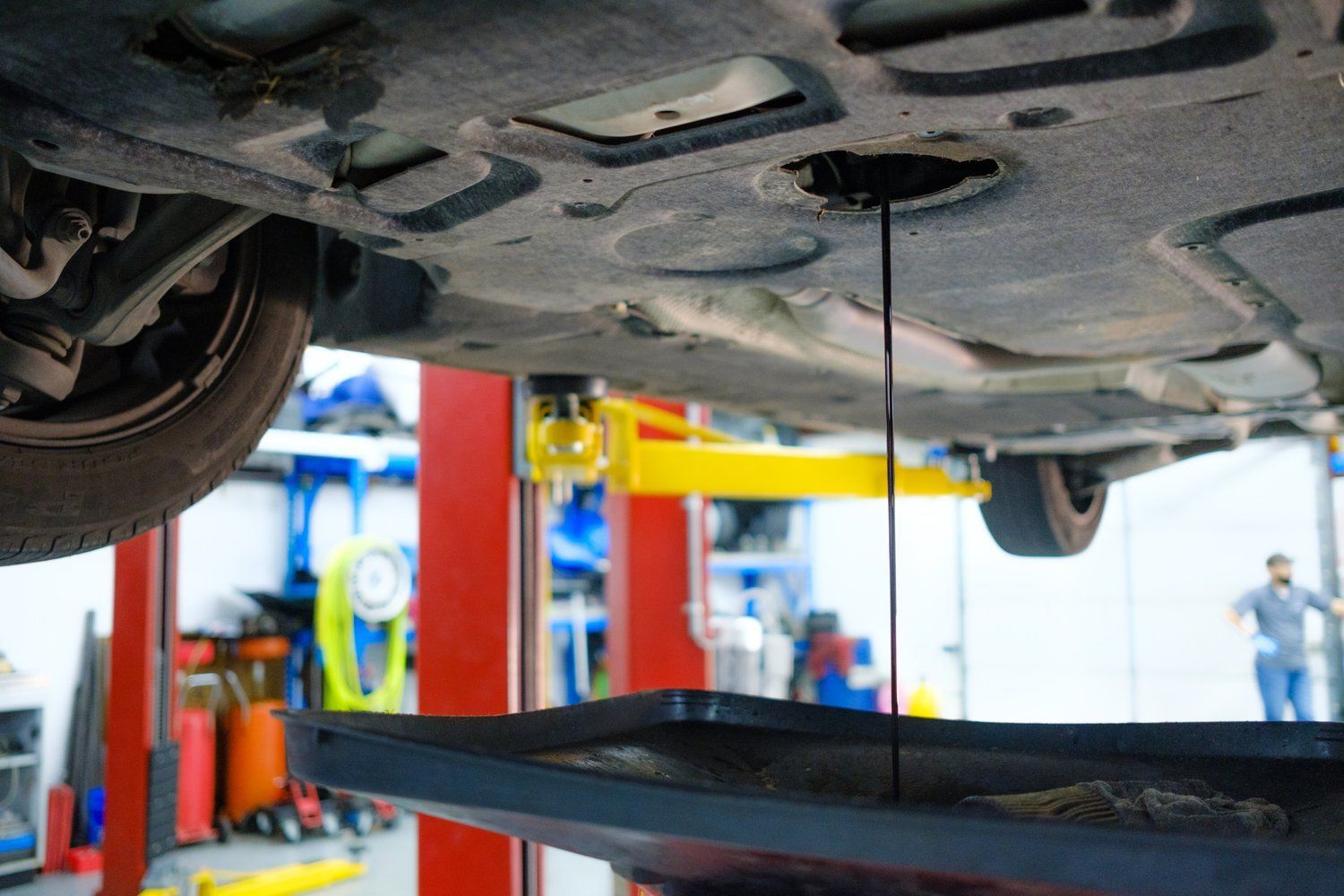
By C Deselle
•
February 12, 2025
Oil leaks are one of the most common issues BMW owners encounter. While these leaks might seem like minor inconveniences, ignoring them can lead to costly repairs and potentially serious damage to your engine. At TMJ Bimmers, we’ve seen and repaired countless BMW oil leaks, and three culprits consistently top the list: valve cover leaks, oil filter housing gasket leaks, and oil pan gasket leaks. Let’s break down these issues, their causes, and how they can be resolved. 1. Valve Cover Gasket Leak What It Is: The valve cover sits on top of your BMW’s engine and seals the valve train. Over time, the gasket that seals the valve cover becomes brittle and starts to leak. This is particularly common in models like the BMW 3 Series, 5 Series, and X Series vehicles, especially those with higher mileage. Signs of a Problem: A burning oil smell due to oil dripping onto the exhaust manifold. Visible oil leaks around the top of the engine. Check engine light (CEL) due to misfires caused by oil seeping into the spark plug wells. Engine running rough or noticeable performance issues. Causes: High engine temperatures causing gasket material to degrade. Normal wear and tear due to age and usage. Improper installation or over-tightening during previous repairs. Waiting too long between oil changes; Extended oil change intervals leading to sludge buildup, which accelerates wear. Potential Consequences : If left unchecked, a valve cover gasket leak can lead to more severe problems, such as damaged ignition coils or fouled spark plugs. This can result in misfires, reduced fuel efficiency, and costly repairs. How We Fix It : At TMJ Bimmers, we replace the valve cover gasket with a high-quality OEM or aftermarket part, ensuring proper torque specifications to prevent future leaks. We also inspect the valve cover itself for cracks, which can occur on older models. After the repair, we thoroughly clean the area to remove any residual oil. 2. Oil Filter Housing Gasket Leak What It Is : The oil filter housing gasket seals the connection between the oil filter housing and the engine block. Over time, this gasket can deteriorate, leading to leaks. This issue is particularly common in turbocharged BMW engines, such as the N54 and N55. Signs of a Problem: Oil pooling near the front of the engine. Unexplained decreased oil levels between oil changes. Visible oil stains on the engine or driveway. Unusual engine noises caused by low oil pressure. Causes : Exposure to heat and pressure, which breaks down gasket material over time. Age-related wear, especially in vehicles with over 60,000 miles. Poor-quality replacement gaskets from previous repairs. Waiting too long between oil changes; Delayed oil changes causing sludge buildup around the gasket. Potential Consequences: Ignoring an oil filter housing gasket leak can cause engine components to wear prematurely. It can also lead to low oil pressure, which in extreme cases, can result in engine failure. How We Fix It: We’ll replace the failing gasket and thoroughly clean the area to ensure no residual oil remains. During the repair, we’ll inspect nearby components like the oil cooler gasket, as it’s often affected in tandem. Additionally, we check for oil contamination in the cooling system, which can occur if the issue is left unresolved for too long. 3. Oil Pan Gasket Leak What It Is: The oil pan gasket seals the oil pan to the bottom of the engine. This gasket can fail, especially in older or high-mileage BMWs. Vehicles that experience frequent stop-and-go driving or those exposed to harsh road conditions are particularly susceptible. Signs of a Problem: Oil spots on your garage floor or driveway. Visible oil dripping from the underside of the car. Low oil level warning on the dashboard. Increased oil consumption requiring frequent top-offs. Causes: Damage from road debris or impacts causing stress on the oil pan. Long-term wear and exposure to heat, which weakens gasket material. Over-tightened bolts leading to gasket compression and failure. Improper installation during previous repairs. Potential Consequences : An untreated oil pan gasket leak can lead to low oil levels, causing inadequate lubrication of engine components. Over time, this can result in excessive wear, overheating, and potentially catastrophic engine damage. How We Fix It: Replacing an oil pan gasket involves removing the oil pan, cleaning the mating surfaces, and installing a new gasket. This process requires precision and care, as improper installation can lead to further leaks. While the oil pan is off, we inspect for sludge or debris to ensure the engine stays in optimal condition. We also replace the engine oil and filter as part of the service. Why Do BMWs Experience Oil Leaks? BMWs are known for their precision engineering and high-performance engines. However, these characteristics also make them more prone to oil leaks due to: Higher operating temperatures compared to many other vehicles. The use of synthetic oil, which can expose weaknesses in gaskets over time. Complex engine designs with multiple gaskets and seals. Regular maintenance and timely repairs are key to keeping your BMW in peak condition. Why Choose TMJ Bimmers for Your BMW Repairs? Oil leaks are more than just a nuisance—they can compromise your engine’s performance and longevity. At TMJ Bimmers, we specialize in BMW maintenance and repairs, offering: Expertise : Our team is trained to diagnose and repair common BMW issues efficiently. High-Quality Parts : We use OEM and premium aftermarket parts to ensure durability and reliability. Transparent Communication : We’ll walk you through the repair process and provide clear, upfront pricing. Comprehensive Inspections : Every repair includes a thorough inspection to identify and address potential issues before they escalate. If you suspect your BMW has an oil leak, don’t wait for the problem to worsen. Contact us today at 713.384.2273 or visit tmjbimmers.com to book your appointment at our Houston shop to have your vehicle inspected. Let’s keep your BMW running smoothly and leak-free for miles to come!
TMJ Bimmers Euro Auto Repair
Mon - Fri 8:00am - 6:00pm
Payment Options







Services
List of Services
-
Air Conditioning ServiceAir Conditioning Service
-
Alignment SpecialistAlignment Specialist
-
Battery ServicingBattery Servicing
-
Brake Inspection and ServiceBrake Inspection and Service
-
Check Engine Light ServicesCheck Engine Light Services
-
Complete Computer DiagnosticsComplete Computer Diagnostics
-
Coolant Systems RepairCoolant Systems Repair
-
Differential & Transfer Case ServicingDifferential & Transfer Case Servicing
-
Electrical System RepairElectrical System Repair
-
Engine Service and RepairEngine Service and Repair
-
Muffler & Exhaust System Repair and UpgradeMuffler & Exhaust System Repair and Upgrade
-
Fuel System ServiceFuel System Service
-
Oil ChangeOil Change
-
Performance & Transmission TuningPerformance & Transmission Tuning
-
Pre-Purchase InspectionsPre-Purchase Inspections
-
Road-Force Wheel BalancingRoad-Force Wheel Balancing
-
Steering and SuspensionsSteering and Suspensions
-
Timing Chain Issues & RepairsTiming Chain Issues & Repairs
-
Transmission Repair and ServiceTransmission Repair and Service
List of Services
-
Air Conditioning ServiceAir Conditioning Service
-
Alignment SpecialistAlignment Specialist
-
Battery ServicingBattery Servicing
-
Brake Inspection and ServiceBrake Inspection and Service
-
Check Engine Light ServicesCheck Engine Light Services
-
Complete Computer DiagnosticsComplete Computer Diagnostics
-
Coolant Systems RepairCoolant Systems Repair
-
Differential & Transfer Case ServicingDifferential & Transfer Case Servicing
-
Electrical System RepairElectrical System Repair
-
Engine Service and RepairEngine Service and Repair
-
Muffler & Exhaust System Repair and UpgradeMuffler & Exhaust System Repair and Upgrade
-
Fuel System ServiceFuel System Service
-
Oil ChangeOil Change
-
Performance & Transmission TuningPerformance & Transmission Tuning
-
Pre-Purchase InspectionsPre-Purchase Inspections
-
Road-Force Wheel BalancingRoad-Force Wheel Balancing
-
Steering and SuspensionsSteering and Suspensions
-
Timing Chain Issues & RepairsTiming Chain Issues & Repairs
-
Transmission Repair and ServiceTransmission Repair and Service
Services
List of Services
-
Air Conditioning ServiceAir Conditioning Service
-
Alignment SpecialistAlignment Specialist
-
Battery ServicingBattery Servicing
-
Brake Inspection and ServiceBrake Inspection and Service
-
Check Engine Light ServicesCheck Engine Light Services
-
Complete Computer DiagnosticsComplete Computer Diagnostics
-
Coolant Systems RepairCoolant Systems Repair
-
Differential & Transfer Case ServicingDifferential & Transfer Case Servicing
-
Electrical System RepairElectrical System Repair
-
Engine Service and RepairEngine Service and Repair
List of Services
-
Air Conditioning ServiceAir Conditioning Service
-
Alignment SpecialistAlignment Specialist
-
Battery ServicingBattery Servicing
-
Brake Inspection and ServiceBrake Inspection and Service
-
Check Engine Light ServicesCheck Engine Light Services
-
Complete Computer DiagnosticsComplete Computer Diagnostics
-
Coolant Systems RepairCoolant Systems Repair
-
Differential & Transfer Case ServicingDifferential & Transfer Case Servicing
-
Electrical System RepairElectrical System Repair
-
Engine Service and RepairEngine Service and Repair
-
Muffler & Exhaust System Repair and UpgradeMuffler & Exhaust System Repair and Upgrade
-
Fuel System ServiceFuel System Service
-
Oil ChangeOil Change
-
Performance & Transmission TuningPerformance & Transmission Tuning
-
Pre-Purchase InspectionsPre-Purchase Inspections
-
Road-Force Wheel BalancingRoad-Force Wheel Balancing
-
Steering and SuspensionsSteering and Suspensions
-
Timing Chain Issues & RepairsTiming Chain Issues & Repairs
-
Transmission Repair and ServiceTransmission Repair and Service
© 2024 TMJ Bimmers Euro Auto Repair. All Rights Reserved | Website managed by Shopgenie
